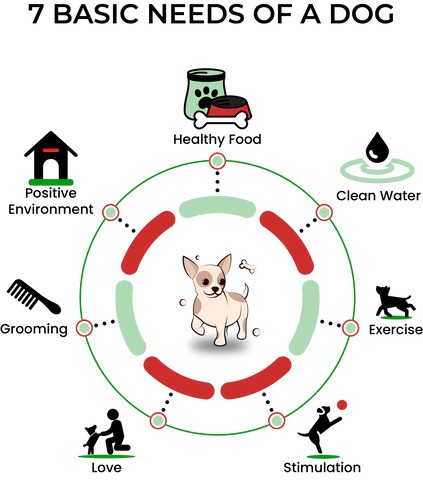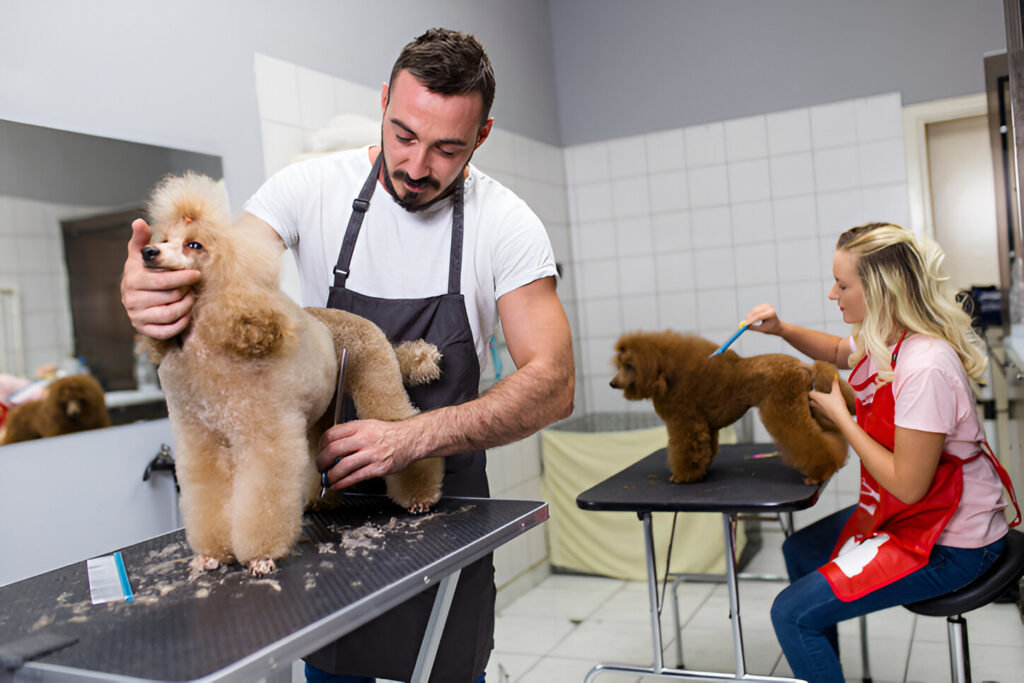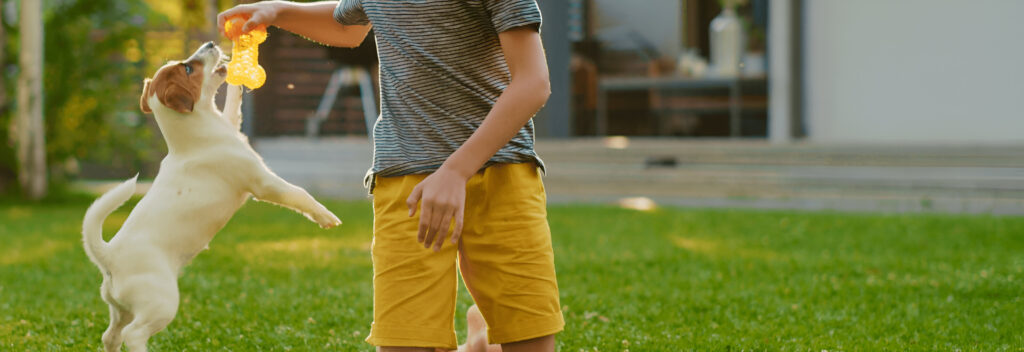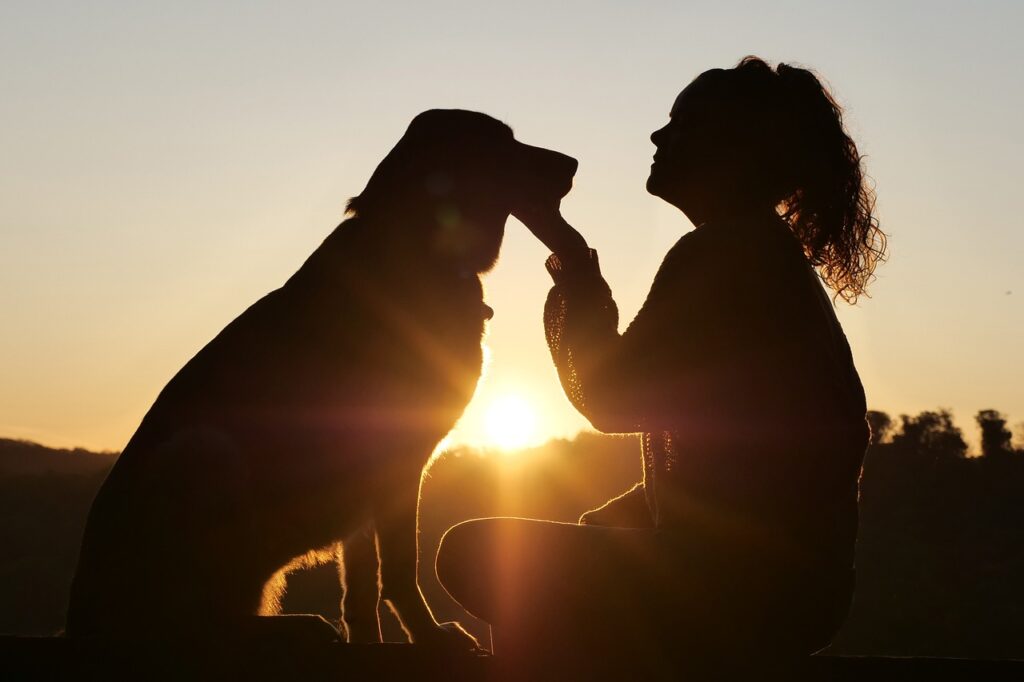Understanding Your Dog’s Basic Needs

Caring for a dog involves more than just providing food and water. It requires an understanding of their physical and emotional needs. A well-cared-for dog is a happy and healthy companion, and meeting these essential needs ensures a strong bond between you and your pet. Here are some essential dog care tips to help you keep your furry friend in the best possible shape.
Nutrition and Diet :Dog Care Tips

Providing a balanced diet is crucial for your dog’s overall health. High-quality dog food that meets the nutritional standards set by organizations such as the Association of American Feed Control Officials (AAFCO) should be your primary choice. Ensure that the food you select is appropriate for your dog’s age, breed, and health condition. Puppies, adult dogs, and senior dogs have different dietary requirements. Additionally, some breeds may need specific nutrients to prevent breed-related health issues.
- Protein: Vital for muscle growth and repair. Sources include meat, fish, and eggs.
- Fats: Provide energy and support cell function. Look for foods with healthy oils like fish oil or flaxseed oil.
- Carbohydrates: Necessary for energy. Include whole grains, vegetables, and fruits in your dog’s care tips diet.
- Vitamins and Minerals: Essential for immune function, bone health, and overall well-being.
Consult with your veterinarian to create a diet plan that meets your dog’s specific needs, and avoid feeding your dog human food, which can be harmful. Following these dog care tips for nutrition will help ensure your pet stays healthy.
Regular Exercise Tips : Dog Care Tips
Exercise is crucial for maintaining your dog’s physical and mental health. Regular physical activity helps prevent obesity, improves cardiovascular health, and reduces behavioral problems caused by boredom. The amount and type of exercise your dog needs depend on their breed, age, and health status.
- Daily Walks: Aim for at least 30 minutes to an hour of walking each day.
- Playtime: Engage in activities like fetch, tug-of-war, or agility training.
- Mental Stimulation: Use puzzle toys, training sessions, and interactive games to keep your dog’s mind sharp.
For high-energy breeds, consider additional activities such as running, hiking, or swimming. Always monitor your dog for signs of overexertion, especially in extreme weather conditions. These dog care tips for exercise will keep your dog active and happy.
Grooming and Hygiene

Regular grooming is essential to keep your dog looking and feeling their best. Grooming needs vary by breed, but generally include:
- Brushing: Helps remove loose fur, dirt, and prevents matting. Long-haired breeds may require daily brushing, while short-haired breeds can be brushed weekly.
- Bathing: Use a dog-specific shampoo and bathe your dog every 4-6 weeks, or as needed.
- Nail Trimming: Trim your dog’s nails regularly to prevent discomfort and injury.
- Ear Cleaning: Clean your dog’s ears to prevent infections, especially in breeds with floppy ears: dog care tips
- Dental Care: Brush your dog’s teeth several times a week and provide dental chews to prevent plaque buildup.
Establishing a regular grooming routine not only keeps your dog clean but also allows you to check for any signs of health issues, such as skin infections or parasites. These dog care tips for grooming will help maintain your pet’s hygiene.
Health and Veterinary Care
Routine veterinary care is vital for early detection and prevention of health issues. Schedule regular check-ups and stay up-to-date with vaccinations, flea and tick prevention, and heartworm medication. Key aspects of health care include:
- Vaccinations: Protect your dog from common diseases like rabies, distemper, and parvovirus.
- Parasite Control: Use preventative treatments for fleas, ticks, and worms.
- Spaying/Neutering: Helps prevent certain cancers and reduces the risk of unwanted litters.
- Regular Health Screenings: Blood tests, urinalysis, and other diagnostics can detect issues early.
Be attentive to changes in your dog’s behavior or physical condition, and consult your veterinarian if you notice anything unusual. Following these dog care tips for health will ensure your dog remains in good condition.
Training and Socialization

Training and socialization are crucial for a well-behaved and confident dog care tips. Start training early using positive reinforcement techniques, which include treats, praise, and play. Basic commands such as sit, stay, and come are essential for safety and good behavior.
- Puppy Socialization: Expose your puppy to various environments, people, and other animals to build confidence and prevent fear-based behaviors.
- Obedience Training: Enroll in a basic obedience class or work with a professional trainer to establish good manners and improve the bond with your dog.
- Behavioral Issues: Address issues like barking, chewing, or aggression promptly with appropriate training techniques.
Consistency and patience are key in training. A well-trained dog is not only a joy to be around but also less likely to develop behavioral problems. Implementing these dog care tips for training will lead to a happier pet.
Creating a Safe Environment: Dog Care Tips
Your dog needs a safe, comfortable living environment. Ensure they have a cozy place to sleep, access to fresh water, and a designated area for elimination.
- Comfortable Bedding: Provide a bed that supports your dog’s size and weight.
- Safe Spaces: Create a quiet area where your dog can retreat when they need to rest or feel anxious.
- Toys and Enrichment: Offer a variety of toys to keep your dog entertained and mentally stimulated dog care tips.
Safety-proof your home by securing hazardous substances and ensuring that your dog cannot access potentially dangerous areas, such as swimming pools or balconies. These dog care tips for creating a safe environment will help prevent accidents and ensure your pet’s well-being.
Travel and Outdoor Safety
Whether traveling or spending time outdoors, it’s essential to keep your dog care tips safe. When traveling, use a crate or a dog seat belt to secure your pet in the car. Never leave your dog unattended in a vehicle, especially in extreme temperatures.
- Identification: Ensure your dog wears a collar with an ID tag and is microchipped.
- Leash and Harness: Use a sturdy leash and harness when walking your dog to prevent accidents and escapes.
- Outdoor Hazards: Be mindful of toxic plants, wildlife, and extreme weather conditions. Always provide shade and fresh water during outdoor activities.
Check out this article about Traveling with Your Dog: Tips for a Stress-Free Journey
By taking these precautions, you can ensure that your dog enjoys safe and enjoyable experiences both at home and on the go. Following these dog care tips for travel and outdoor safety will keep your dog protected in various situations.

